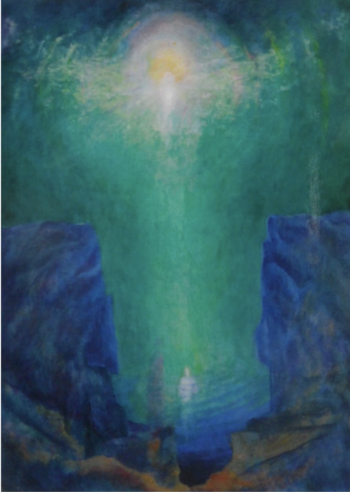Latest News
Kitchen Chat and more…
Kitchen Chat and more…
AND…
A podcast with Oliver Steinrueck in which he speaks about the upcoming world conference to celebrate the 100 year anniversary of the founding of The Christian Community. The conference is called LOGOS — Consecrating Humanity and will be in Dortmund, Germany on October 7-11 2022. This is the first podcast that was offered in English. Click here to listen.
Life can only be understood when contemplated backward, but it has to be lived forward.” That is the life wisdom of a well-known philosopher, Søren Kierkegaard.
Under normal conditions, these two one-sidednesses keep each other in balance. Imagine that we would only go back: we would eventually, literally and figuratively, be unable to make another step in life. And imagine we would only live forward: we would lose ourselves in bustling busyness. Unfortunately, we see the latter all too often: lots of people do nothing but rushing along without understanding where they come from and where they are going.
Of old, it was known that every day we should look back to understand in retrospect what really happened. Through reflection—and most of all self-reflection—we will sooner or later understand the threads of destiny in the fabric of our life. And once we learn to have an overview of all the threads of the fabric, we can lastly be thankful for everything in our life, for joy and suffering, happiness and unhappiness, good and bad luck, because we recognize: it belongs to me. For life is right, in every case.
We take the highest standpoint in the backward contemplation only after we have died. In the life panorama that the Lord of Destiny shows us, we understand backward how we lived forward. If there is anything that connects the living and the dead, it is thankfulness. But as long as we are only thankful for this one human being, for this one happiness that came our way, we have not yet arrived at the right destination with our thanks. The dead recognize whom we have to thank for our existence.
And we? At St. John’s Tide we join in with this highest standpoint, and cry to Him at the altar: “To the Father God, all wielding, all blessing, shall stream our souls’ devoted and heart-warmed thanks.”
–Rev. Bastiaan Baan, St. John’s Tide, 2021

Ninetta Sombart – Baptism in the Jordan
Dear members and friends of The Christian Community,
Visit our current homepage logos-2022.org
As of today, the St John’s Tide Newsletter is available online in several languages. One can travel via internet to all worldwide congregations and find a number of substantive contributions on current conference topics, but also reviews of previous major conferences. Those who like to listen can follow the monthly podcast. Those who like to exchange ideas with others will find our internet forum and the bilingual journal “This Moves Us.” as an interactive PDF document available by request.
With best regards,
Wolfgang Jaschinski
Redakteur/Editor LOGOS-2022 Newsletter
Ulrich Goebel und Tim Gottschalk
Tagungsbüro / Conference Office: Hainallee 40, D 44139 Dortmund

